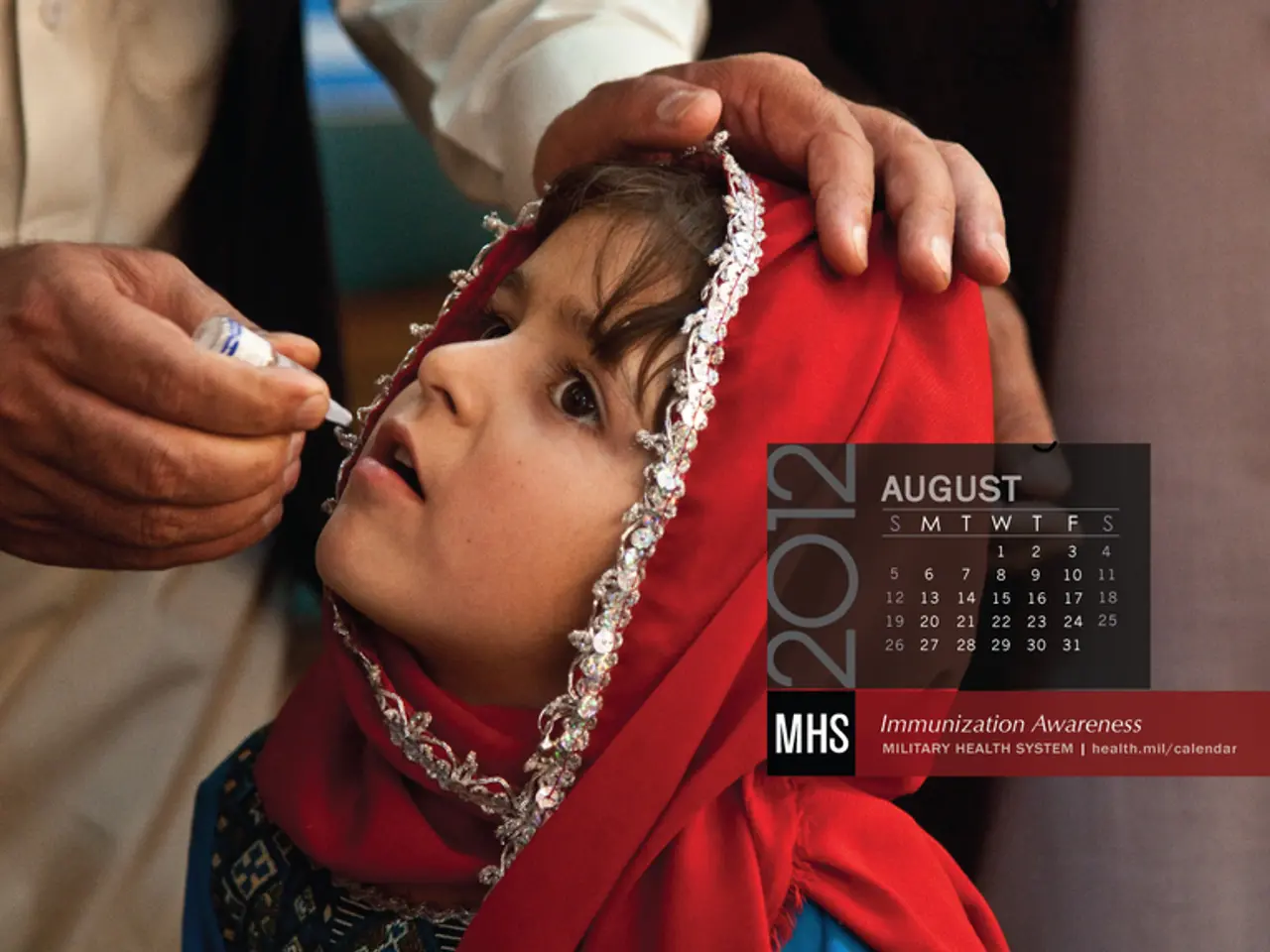Disarray at CDC advisory panel meeting as hepatitis B vaccine decision gets postponed, while a vote on MMRV vaccine is held instead
In a recent development, the US Centers for Disease Control and Prevention's (CDC) vaccine advisers have delayed a vote on changes to the newborn hepatitis B vaccine, while they also considered a recommendation for a Covid-19 vaccine.
The birth dose of the hepatitis B vaccine has been a standard practice in the United States since 1991, with babies usually receiving the vaccine at birth, before they leave the hospital. This measure has significantly reduced Hepatitis B infections in infants, dropping from an average of 18,000 per year to around 20 reported cases annually.
During Friday's meeting, the committee had planned to consider a new recommendation that would wait to give newborns a dose of the hepatitis B vaccine until they are at least a month old. However, the vote on this matter was postponed.
Meanwhile, the committee also voted on the combined measles, mumps, rubella, and chickenpox vaccine for the Vaccines for Children program. Nine members voted in favour of the new recommendation, while three members abstained. This vote brought the Vaccines for Children program in line with the new recommendation against using the combined measles, mumps, rubella, and varicella vaccine for young children, as decided in Thursday's meeting.
Dr. Jason Goldman, the president of the American College of Physicians, expressed concerns about the conflicting MMRV votes. Goldman suggested that the conflicting votes revealed a lack of data or evidence to challenge the current standing. He also expressed concerns about potential disparities in recommendations for people of lower socioeconomic levels.
Goldman also highlighted that there is no associated harm with the current standing of vaccines. He emphasised that children infected with hepatitis B nearly always develop long-term infections, which can damage the liver and increase the risk for liver scarring, transplant, and cancer.
It is worth noting that the Health and Human Services (HHS) will examine insurance coverage implications before making a final decision on the new recommendations. The ACIP vote on the Covid-19 vaccine is not final yet, and the situation is part of a breaking news story that will be updated.
In the interim, Kennedy deputy Jim O'Neill is serving as the acting CDC director after Dr. Susan Monarez was ousted. The name of the new CDC leader has not been announced as of yet, as the search results do not provide the successor's name after Monarez's tenure ended on August 27, 2025.
The delay in the vote on the newborn hepatitis B vaccine is a significant development, and the public will be closely watching for updates on this matter. The importance of vaccines in preventing diseases and saving lives cannot be overstated, and it is crucial that the vaccine advisory committees make informed decisions based on robust data and evidence.
Read also:
- Tracking Grapes for International Shipping
- New York joins a multistate health coalition to counteract chaos in federal vaccine distribution efforts
- Enhanced Iron Absorption in Female Health: Biotechnology Developed Plant Protein Outperforms Iron Supplements in Fermentation
- Controversy Surrounding Epstein Heats Up in Washington; Trump Endorses Homelessness Executive Order; More Events Reported






